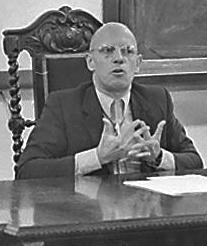 Alain Supiot in the New Left Review:
Alain Supiot in the New Left Review:
If we trace the branches of the law back to its trunk, we always come to the question that informs them all: that of the preservation of human life. The covid pandemic has reminded us of this, since the measures taken to deal with it have affected every country, domestic as well as international law, public as well as private or social law. Some commentators have seen this as illustrating the sway of biopower, which, according to Foucault, characterizes the modern age. Without much concern for consistency, the same commentators have often noted the ‘medieval’ character of the covid lockdowns and quarantine measures, to which political leaders had recourse many centuries before the supposed epiphany of ‘biopower’.
For Foucault, biopower refers to the passage, from the nineteenth century onwards, from a right of sovereignty—consisting in ‘making people die’ or ‘letting them live’—to ‘an exactly opposite power . . . of “making people live” and “letting them die”’. But long before the idea of a sovereign secular power had crystallized in the sixteenth century, princes or cities were adopting legal provisions aimed at ‘making live’ rather than ‘letting live’—not only to deal with epidemics, but more broadly to preserve the health of their populations. Herodotus, for example, marvels at the following rule in force among the Babylonians in the fifth century bc:
Having no use for physicians, they carry the sick into the marketplace; then those who have been afflicted themselves by the same ill as the sick man’s, or seen others in like case, come near and advise him about his disease and comfort him, telling him by what means they have themselves recovered of it or seen others so recover. None may pass by the sick man without speaking and asking what is his sickness.
More here.
